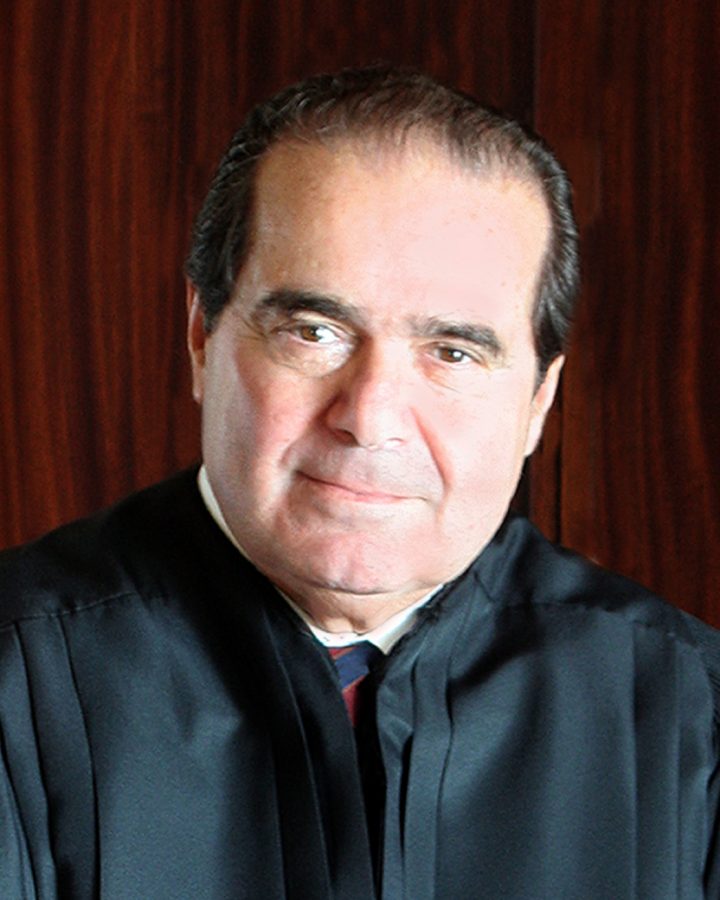Being Right: Candidates Neck & Neck
Over the weekend, the nation was shocked and saddened by the sudden death of Associate Justice of the Supreme Court Antonin Scalia, who passed away while on vacation in Texas. Justice Scalia, appointed to the Supreme Court by President Reagan, served for nearly three decades. There is no doubt that Justice Scalia was a polarizing figure; his opinions were often sarcastic and never shied away from explaining just what he thought. For the right, the passing of Justice Scalia marks the end of the career of a champion of conservative values – the end of a man’s career who was never afraid to put forth his conservative view, even when he was in the minority. Justice Scalia was a giant in conservative thought and will surely be missed by those who share his way of thinking.
As quickly as the news of Justice Scalia’s death spread, the conversation switched to speculations of what it would mean politically. Scalia’s passing means that the bench of the Supreme Court of the United States is now split 50-50 regarding political ideologies. Presidents always covet Supreme Court vacancies, as they are an opportunity to build a larger legacy since justices’ tenures last far beyond that of the President’s term. Scalia’s death gives President Obama a chance to appoint his third justice to the bench.
However, the current outlook is hazy. First, the sudden timing of the vacancy complicates the picture. In this day and age, most justices plan the time of their retirement to suit the party that they support. Many have speculated that Ruth Bader Ginsburg has not yet retired due to the Republican party’s majority in the Senate.
A president has the freedom to nominate a liberal or conservative justice when their party controls the Senate, since this can lead to an easier confirmation process. Moreover, Obama and Congress have a tumultuous relationship at best. The Senate will closely scrutinize any justice that Obama nominates. The Senate could even vote down the nomination. Majority leader Mitch McConnell, as well as some of the Republicans running for president, has already suggested that the vacancy not be filled until after the presidential election in November. Despite this call, it seems that Obama will make a nomination. Whoever he nominates will take national politics down a distinct path.
Obama’s first option is to nominate a moderate justice who will be able to pass the vote of a hostile Senate. In some ways, this choice panders to the right by trying to find someone who can be mutually supported. While appointing someone more moderate may not seem like an attractive choice to Obama, it could make him seem more amenable to Republicans. While his administration has often been criticized for further dividing national politics, choosing a more moderate successor would signal to the Senate that he is willing to work together to fill the empty seat.
Conversely, Obama’s second choice is to pick the justice he would most like to see on the Supreme Court as a part of his lasting legacy, seizing this unexpected opportunity to add a fifth liberal Justice to the bench. While this choice may do more for him in posterity, it will do nothing to help his
relationship with the Senate.
In the face of this choice, it would be preferable to see Obama pick a more moderate judge who can reasonably be approved by the Senate. The Supreme Court functions best when it has the appropriate number of justices, so while some Republicans want to delay the process until after the November election, it is important to ensure our democracy functions to the best of its abilities, and this means confirming a new justice in a timely manner.
Obama was elected president on promises of hope and change, but many feel that these promises have been sparsely fulfilled over the past eight years. If Obama chooses to appoint a more moderate justice, it will signal something new for his administration: a willingness to work together, across the aisle. Obama should be wary of appointing someone extra polarizing and should use this vacancy to make good on some of his long-lost campaign promises. Ultimately, he should choose political unity over partisanship









